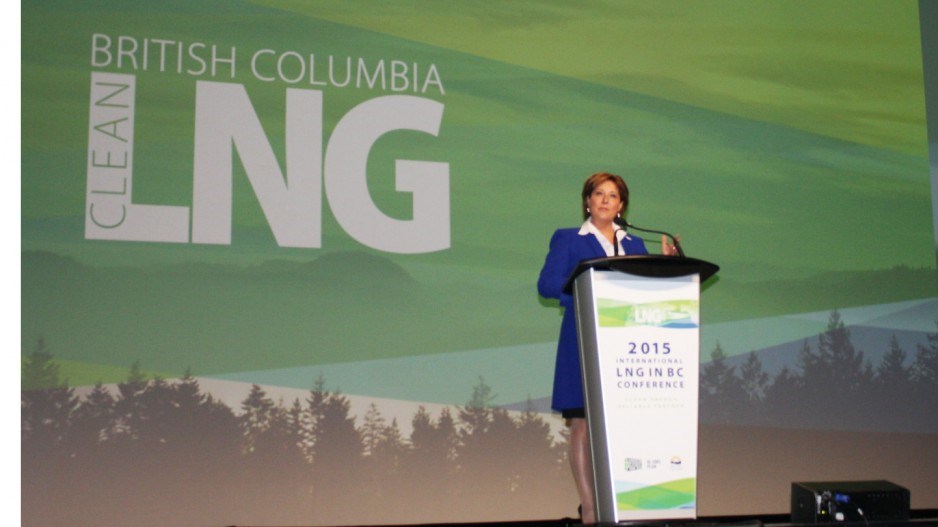Had everything gone according to plan, Christy Clark’s Liberal government would enter the 2017 provincial election campaign at the beginning of a major construction boom, thanks to several large-scale energy projects.
Construction of at least one oil pipeline, possibly two, had been expected to be underway already, putting thousands of British Columbians to work.
The Northern Gateway project would have created an estimated 3,000 construction jobs, $1.2 billion in taxes and more than $800 million on spending on goods and services. That project is all but dead, according to many observers.
But the biggest job boom was to have come from liquefied natural gas projects, like Petronas’ Pacific NorthWest LNG and Royal Dutch Shell’s LNG Canada.
The two projects combined would represent a total capital investment of roughly $80 billion – the spending equivalent of about nine Site C dam projects.
Just last week, however, Shell Canada announced that the final investment decision (FID) it promised to make in 2016 on its LNG Canada project was being indefinitely postponed.
“The project in Canada is FID ready and the project has not been cancelled,” LNG Canada CEO Andy Calitz said.
While Petronas could still make an FID this year, it faces some of the same market challenges that Shell faces, plus the added hurdles of First Nations hostility, an environmentally problematic site and a federal government that appears to be in no hurry to see the project proceed.
Some energy experts say there is still a long-term demand for LNG and that B.C. could be a player in that sector, but that projects will not move ahead on timelines originally proposed.
And that could pose political problems for Clark’s government, because it invested so much political capital on an LNG industry.
“It’s definitely a negative for the Clark government,” said George Hoberg, a professor at the Liu Institute for Global Issues at the University of British Columbia. “They pinned their entire 2013 platform on this LNG dream that has turned out to be no more than a dream. I’m sure the NDP will go after them hard on that.”
He referred to the Liberal government’s 2013 jobs plan, which promised LNG would generate $1 trillion in economic activity and create a $100 billion prosperity fund.
“I don’t know how many people believed the Liberal government in 2013, but it certainly undercuts their credibility that they had such a fantastical policy platform that turned out to be a complete fantasy,” Hoberg said.
“The good news for the BC Liberals is the exemplary performance of the B.C. economy even without all that LNG investment.”
Indeed, billions have already been invested in B.C. in preparation for an LNG industry, and energy companies continue to invest hundreds of millions in northeast B.C.’s Montney basin, irrespective of an LNG industry taking off, because there is considerable value in the region’s propane and other natural gas liquids.




